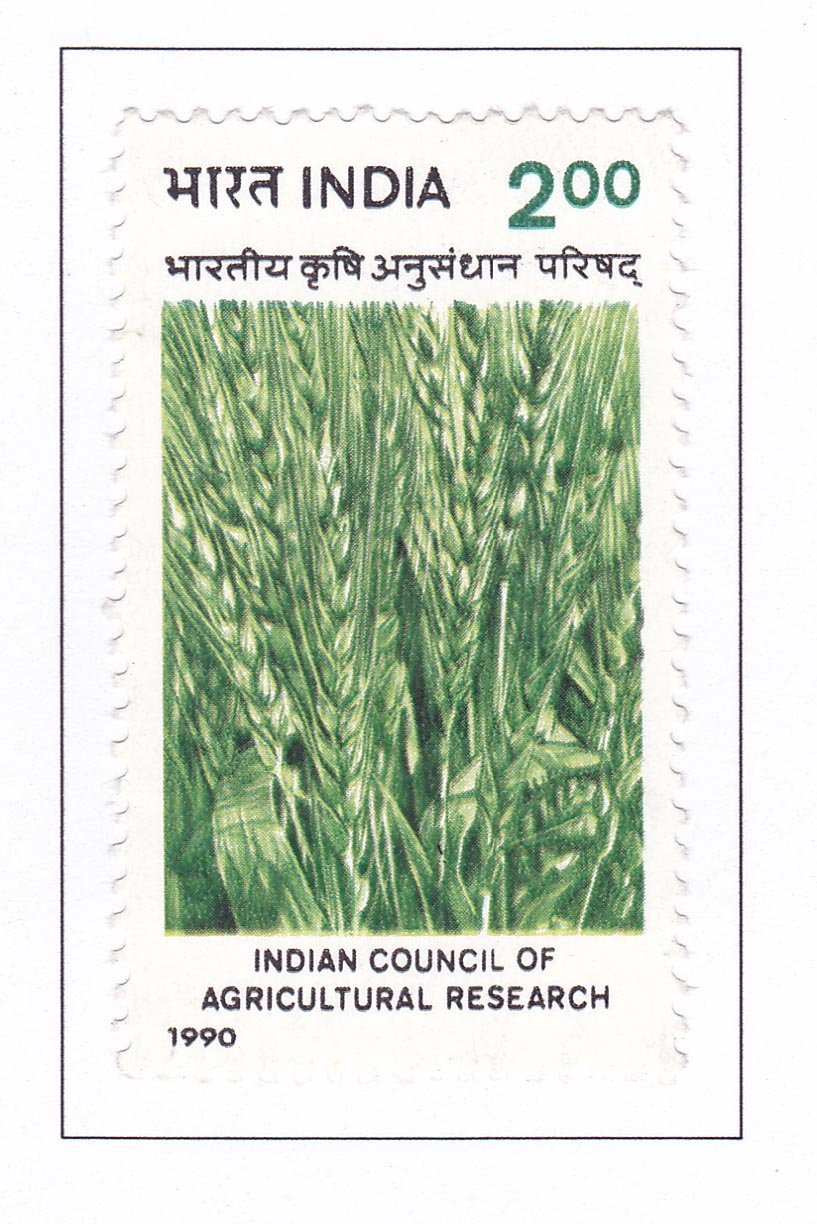Indian Council of Agricultural Research

Technical Data
| Date of Issue | July 31, 1990 |
|---|---|
| Denomination | Rs. 2 |
| Quantity | 1,500,000 |
| Perforation | Comb 14 |
| Printer | Security Printing Press, Nashik |
| Watermark | No Watermark |
| Colors | Multicolor |
| Catalog Codes |
Michel IN 1257 Stamp Number IN 1316 Yvert et Tellier IN 1059 Stanley Gibbons IN 1408 |
| Themes | Agriculture | Anniversaries and Jubilees | Crops |
The Indian Council of Agricultural Research (ICAR) plays a pivotal role in advancing agricultural research and education in India. Here are some key points about ICAR and its contributions:
Establishment and Mandate:
- ICAR was established in 1929 based on the recommendations of the Royal Commission of Agriculture.
- It is an autonomous apex body responsible for organizing and managing research and education in agriculture, animal sciences, and fisheries across India.
Infrastructure and Network:
- Over its history of 60 years, ICAR has developed a robust infrastructure:
- 41 research institutes
- 4 national bureaus
- 1 national academy of agricultural research management
- 25 national research centres
- 9 project directorates
- 69 All-India Coordinated Research Projects
- It has also facilitated the establishment of 26 agricultural universities.
Achievements in Food Security:
- Through its research efforts, ICAR has contributed significantly to achieving self-sufficiency in food production in India.
- The introduction of high-yielding crop varieties during the Green Revolution in the early 1960s marked a significant milestone.
- Subsequent revolutions like the Blue Revolution (in fisheries) and White Revolution (in milk production) further enhanced food production capacity.
Recognition and Awards:
- ICAR’s success in transforming India’s agricultural landscape was acknowledged globally.
- It was awarded the King Baudouin International Development Prize in 1988, recognizing its role in India’s agricultural development.
Future Initiatives – ‘Yellow Revolution’:
- Indian Council of Agricultural Research is currently focusing on the ‘Yellow Revolution’, aimed at achieving self-sufficiency in oilseeds and edible oil production.
- Its ongoing efforts are geared towards developing an efficient and sustainable nutritional food-security system to meet the challenges of the 21st century.
Indian Council of Agricultural Research continues to play a crucial role in enhancing agricultural productivity, sustainability, and food security in India through innovative research and education initiatives.
